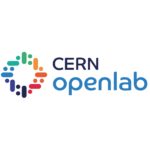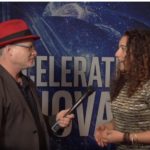Last week at SC18, Micron announced that the company has joined CERN openlab, a unique public-private partnership, by signing a three-year agreement. Under the agreement, Micron will provide CERN with advanced next-generation memory solutions to further machine learning capabilities for high-energy physics experiments at the laboratory. Micron’s memory solutions that combine neural network capabilities will be tested in the data-acquisition systems of experiments at CERN.
Video: How Ai is helping Scientists with the Large Hadron Collider
In this video from SC18 in Dallas, Dr. Sofia Vallecorsa from CERN OpenLab describes how Ai is being used in design of experiments for the Large Hadron Collider. “An award-winning effort at CERN has demonstrated potential to significantly change how the physics based modeling and simulation communities view machine learning. The CERN team demonstrated that AI-based models have the potential to act as orders-of-magnitude-faster replacements for computationally expensive tasks in simulation, while maintaining a remarkable level of accuracy.”
ISC Keynote: Tackling Tomorrow’s Computing Challenges Today at CERN
In this keynote video from ISC 2018, Physicist and CTO of CERN openlab discusses the demands of capturing, storing, and processing the large volumes of data generated by the LHC experiments. “CERN openlab is a unique public-private partnership between The European Organization for Nuclear Research (CERN) and some of the world`s leading ICT companies. It plays a leading role in helping CERN address the computing and storage challenges related to the Large Hadron Collider’s (LHC) upgrade program.”
Addressing Computing Challenges at CERN openlab
In this special guest feature from Scientific Computing World, Robert Roe speaks with Dr Maria Girone, Chief Technology Officer at CERN openlab ahead of her keynote presentation at ISC High Performance. “The challenge of creating the largest particle accelerator is now complete but there is another challenge – harnessing all of the data produced through experimentation. This will become even greater when the ‘high-luminosity’ LHC experiments begin in 2026.”
Maria Girone from CERN openlab to Keynote ISC 2018
Today ISC 2018 announced that Maria Girone from CERN openlab will keynote the conference on Monday, June 25. “I will discuss some of the approaches we are considering to grapple with these enormous data requirements, including deploying resources through using commercial clouds, and employing new techniques, such as alternative computing architectures, advanced data analytics, and deep learning,” explains Girone. “Finally, I will present some medical applications resulting from the research at CERN.”
Video: Computing Challenges at the Large Hadron Collider
CERN’s Maria Girona gave this talk at the HiPEAC 2018 conference in Manchester. “The Large Hadron Collider (LHC) is one of the largest and most complicated scientific apparata ever constructed. “In this keynote, I will discuss the challenges of capturing, storing and processing the large volumes of data generated at CERN. I will also discuss how these challenges will evolve towards the High-Luminosity Large Hadron Collider (HL-LHC), the upgrade programme scheduled to begin taking data in 2026 and to run into the 2030s, generating some 30 times more data than the LHC has currently produced.”








